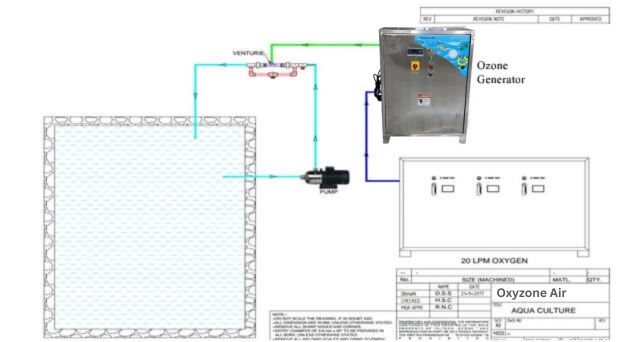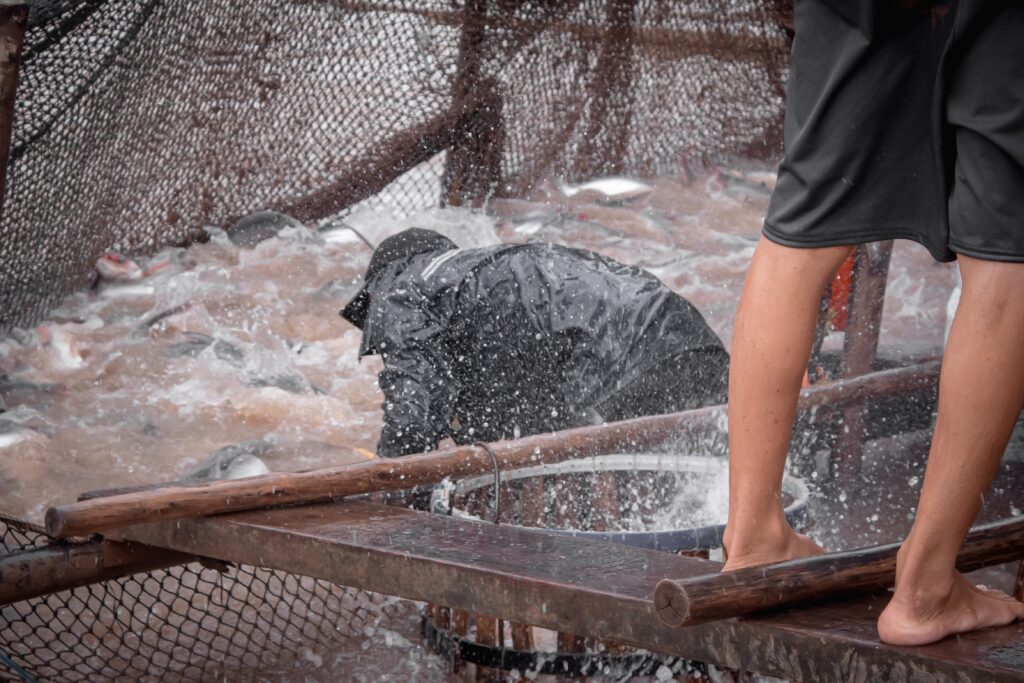Ozone Generator for Aquaculture Fish Farming
What is Ozone Generator for Aquaculture/ Fish Farming?
An ozone generator for aquaculture or fish farming is a device that produces ozone (O3) gas, which is then used in the water treatment process within aquaculture systems. Ozone is a powerful oxidizing agent that can be used to improve water quality and provide several benefits in fish farming operations. Ozone generators work by creating ozone gas through electrical discharge or ultraviolet (UV) light, and this gas is then introduced into the aquaculture water system. The dosage and duration of ozone treatment must be carefully controlled to ensure it remains effective without harming the fish or other aquatic organisms. It’s important to note that the use of ozone generators in aquaculture should be done with a good understanding of water chemistry, fish species, and the specific needs of the fish farm, as improper use of ozone can have adverse effects. Proper monitoring and control systems are essential to maintain the desired water quality and ensure the well-being of the fish.
Benefits of Ozone Generator for Aquaculture/ Fish Farming
- Water Disinfection: Ozone is an effective disinfectant that can kill bacteria, viruses, and parasites present in the water. By introducing ozone into the water, fish farms can reduce the risk of diseases spreading among the aquatic organisms, leading to healthier and more robust fish.
- Algae Control: Ozone can help control and eliminate algae blooms in aquaculture ponds or tanks. Algae can deplete oxygen levels, create turbidity, and produce toxins harmful to fish. Ozone treatment can prevent or mitigate these issues.
- Organic Matter Removal: Ozone breaks down organic compounds, such as uneaten fish feed and fish waste, into smaller, more manageable particles. This can help maintain water quality by reducing organic buildup and the associated oxygen demand.
- Improved Water Quality: Ozone can enhance water clarity and oxygenation, leading to better overall water quality. This, in turn, promotes fish health and growth.
- Removal of Odors and Off-Flavors: Ozone can help eliminate unpleasant odors and off-flavors in the water, which can affect the taste and quality of the fish.
- Increased Oxygen Transfer: Ozone can improve oxygen transfer efficiency in water, which is critical for fish respiration. Enhanced oxygen levels can lead to faster fish growth rates and improved feed conversion.
- Reduced Chemical Usage: Ozone treatment can reduce the need for chemical additives in water treatment, which can be cost-effective and environmentally friendly.

